Bill Hemmer visits Arctic Ocean with US Navy
‘America’s Newsroom’ co-anchor Bill Hemmer embeds with the Navy in the Arctic to learn more about military operations in the region.
"America’s Newsroom" co-anchor Bill Hemmer made a journey few get to experience last week, embedding with the U.S. Navy during its "Operation Ice Camp 2024" in the Arctic Ocean.
"Our Joint Force’s ability to operate in all domains, to include the Arctic, is vital to our national security," Rear Adm. Andrew Miller, the commander of the Undersea Warfighting Development Center, said in a press release about the importance of Operation Ice Camp last week.
The three-week operation, which was previously known as Ice Exercise (ICEX), has been held every other year since 1946, but this year's version of the operation may be the most important yet.
Hemmer was invited to tag along for a portion of this year's operation and travel to the Arctic, where the Fox News host saw the work the U.S. Navy does in the region firsthand.
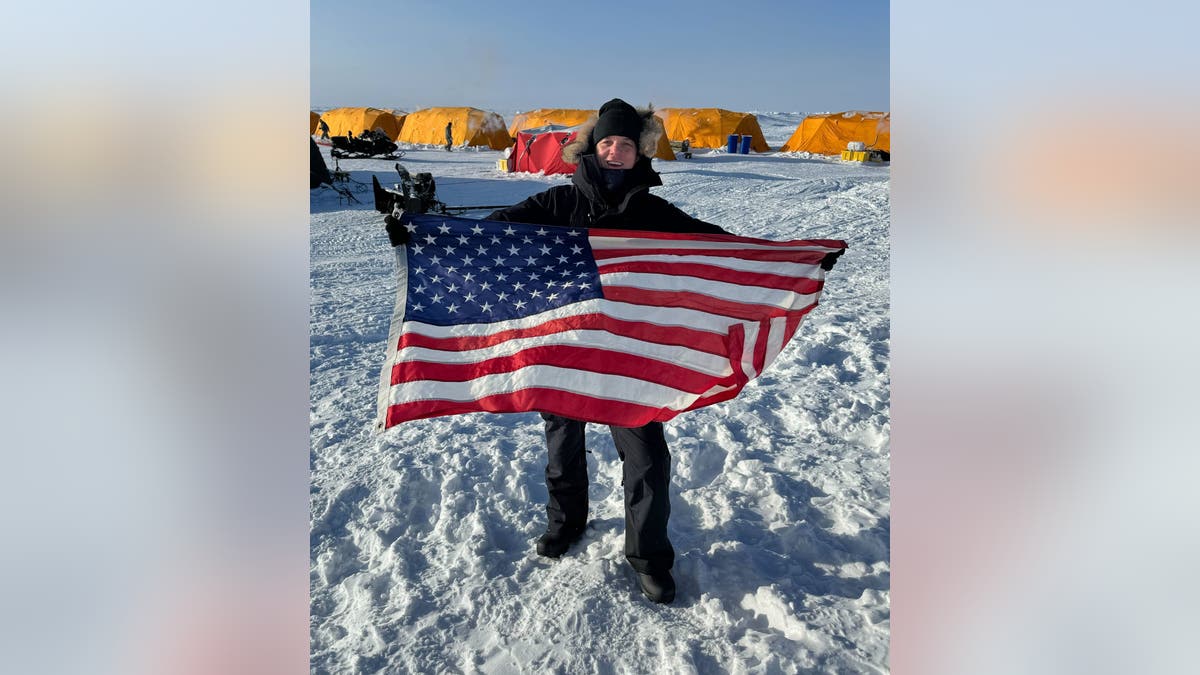
Fox News Bill Hemmer holds American flag near Ice Camp Whale. (Fox News - Bill Hemmer)
His journey started near Washington, D.C., at Andrews Air Force Base, where Hemmer caught a nearly eight-hour flight to an airport in the remote Alaskan town of Deadhorse. From there, the Fox News host had to fly another 200 miles north over ice-covered waters to the Beaufort Sea, where he linked up with the sailors and scientists carrying out operations at "Ice Camp Whale."
Upon his arrival at the camp, Hemmer noted the "bone-chilling cold" of the demanding landscape, which included the threat of ice cracks and polar bears. But the service members and scientists of Ice Camp Whale aren't just there to train in a unique and dangerous cold weather environment, Hemmer found, noting the region has been taking on increased strategic importance over the last few years.
Eight countries have territory north of the Arctic Circle: Norway, Sweden, Finland, Russia, the United States, Canada, Denmark (Greenland), and Iceland. All but one of those countries, Russia, is a member of NATO. Two of those countries, Sweden and Finland, have joined NATO within the last year, a response to Russian President Vladimir Putin's invasion of neighboring Ukraine in early 2022.
The outlier, Russia, is top of mind for U.S. military leaders operating in the Arctic, including Navy Adm. Daryl Caudle, who told Hemmer that Russia considers the region its "backyard."
"Russia considers this their backyard," Caudle told Hemmer from Ice Camp Whale. "And they would love nothing more than take claim to the entire Arctic region. It's full of resources, the trade routes are opening more and more each year… they consider this a place that they have dominance."
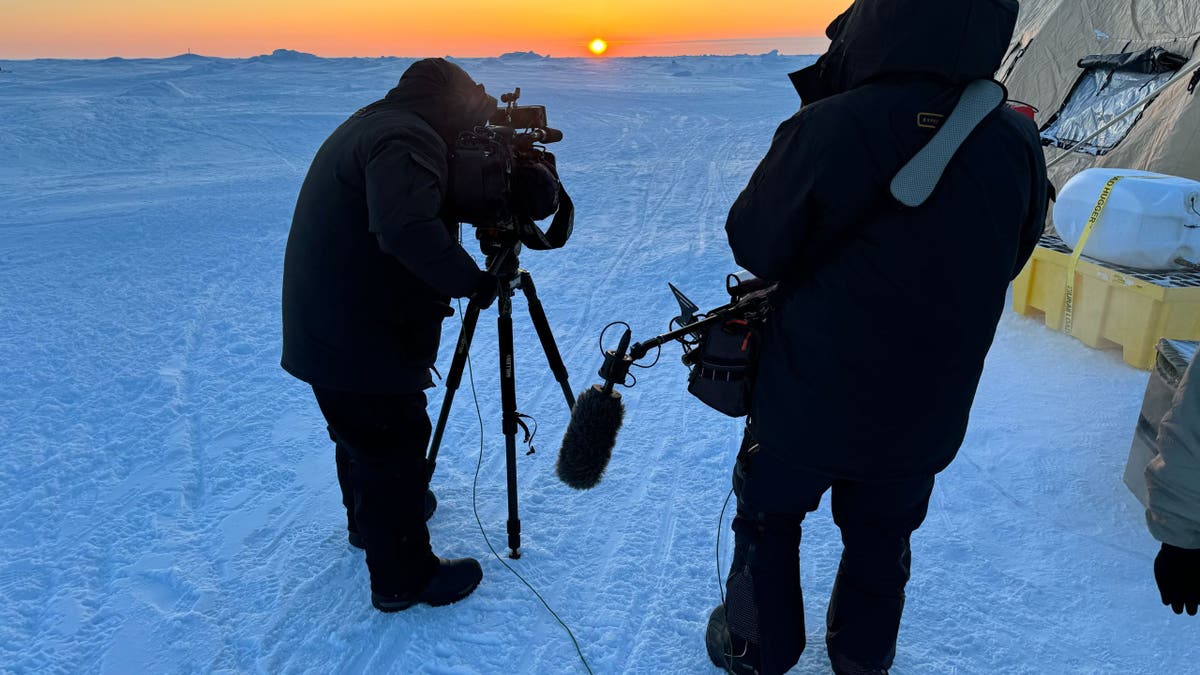
Fox News Crew films at Ice Camp Whale. (Fox News - Bill Hemmer)
ARCTIC RACE HEATS UP AS RUSSIA LAUNCHES FLAGSHIP NUCLEAR-POWERED ICEBREAKER
Those potential trade routes are opening because of melting Arctic ice, the Navy told Hemmer, though Navy researchers are still studying the impact that melting could have outside the region.
"Our knowledge of the Arctic is not as complete as it needs to be, so I think we need more research, we need to collect data like we're doing here, inform the models, develop the models, and continue to research so we have a better idea," Ben Reeder of the Naval Postgraduate School told Hemmer from Ice Camp Whale.
The Navy's mission in the Arctic goes beyond just research, extending to more conventional military operations such as the deployment of nuclear submarines to the region. Hemmer received a firsthand look at that side of the operation as well, taking a helicopter even further north to meet up with the USS Hampton. At the designated rendezvous point, Hemmer witnessed the rare site of the U.S. Los Angeles-class submarine breaking through the surface to reveal itself to the icy landscape.
Getting aboard the San Diego-based vessel was no easy task from there, Hemmer noted, with crews using chain saws for over an hour to cut their way through the thick ice and reveal the submarine's hatch.
Hemmer would spend the next 24 hours aboard the vessel, learning how the crew went about their daily lives in the tight quarters while also carrying out their important mission.
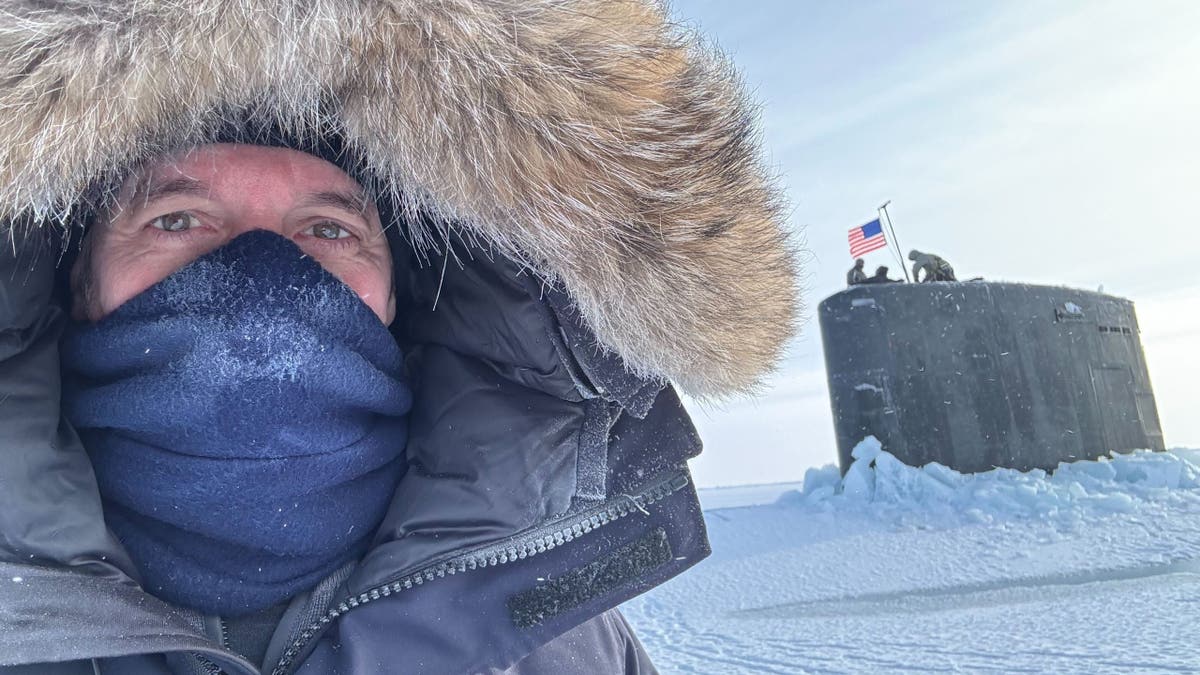
Fox News Bill Hemmer outside the USS Hampton.
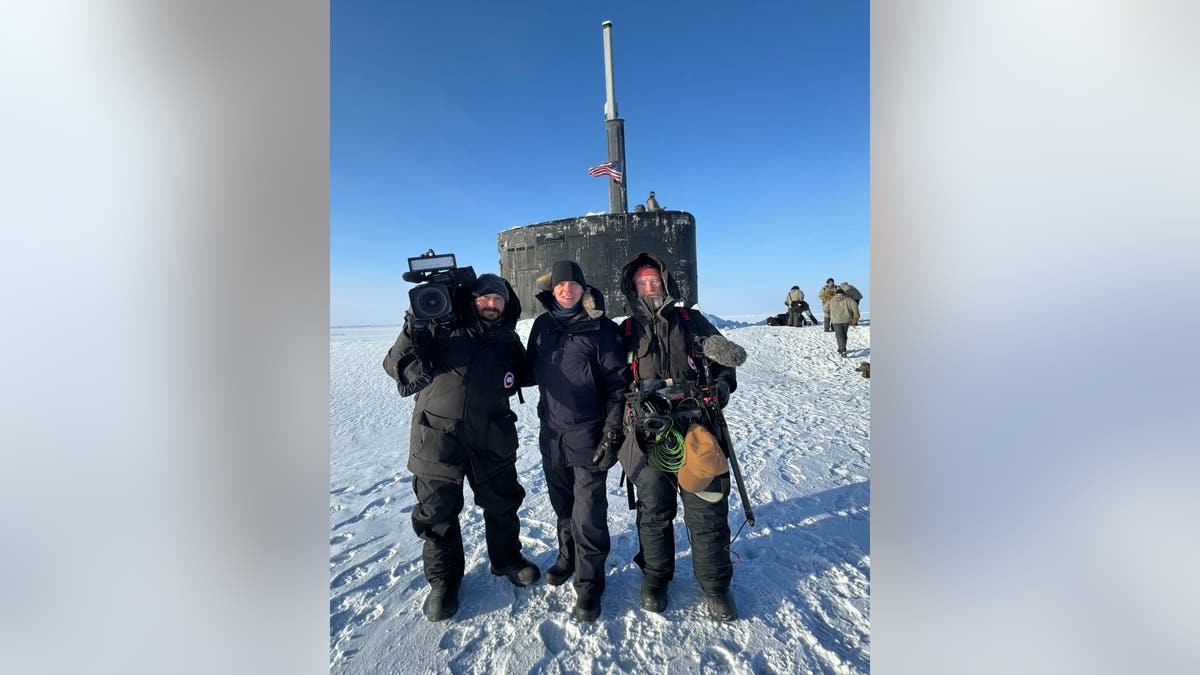
Fox News crew outside of the USS Hampton. (Fox News - Bill Hemmer)
TANKER CREW REPORTEDLY UNHARMED AFTER ATTACK BY YEMEN’S HOUTHI REBELS IN THE RED SEA
Isolated from the outside world for roughly three months at a time, the crew told Hemmer about their lives aboard the vessel, bragging that there is no better food in the military than on a submarine. That food includes ice cream, Hemmer was told, a longtime tradition aboard Navy submarines that leaders believe helps improve morale amid the months of isolation and cramped quarters.
The crew is also tasked with an important mission, one Hemmer said the crew carried out with "intent" the entire time he was there.
Like back at Ice Camp Whale, leaders aboard the USS Hampton identified Russia as a primary concern for the U.S. military's operations in the region.
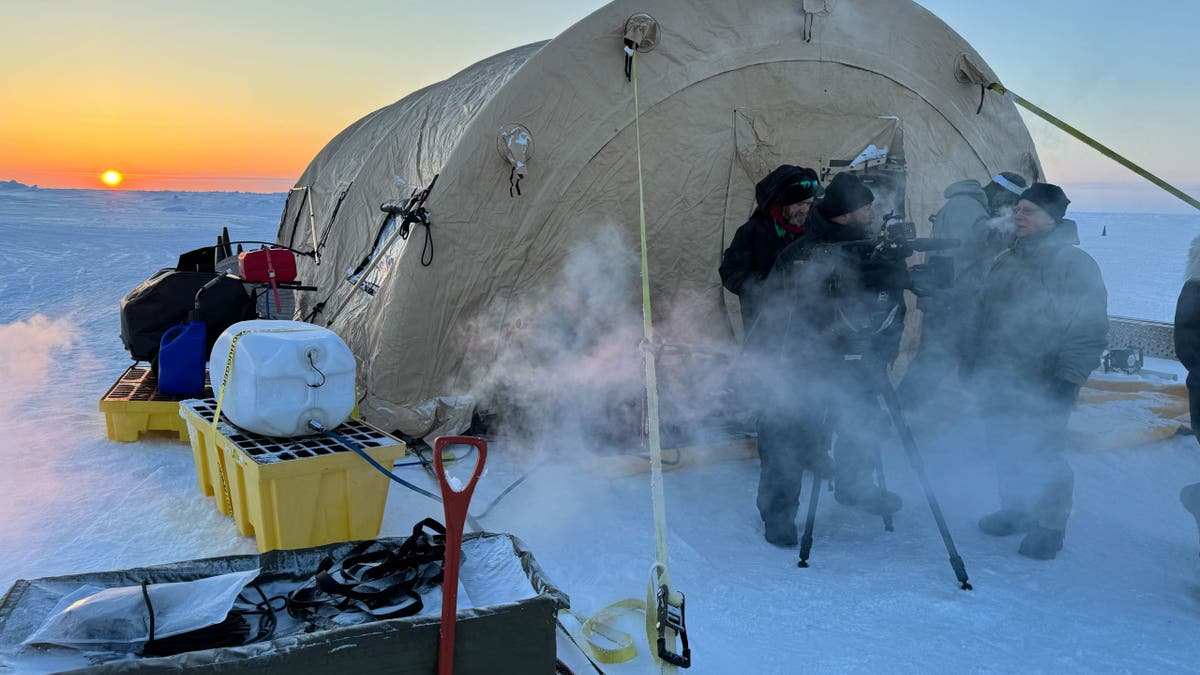
A tent at Ice Camp Whale. (Fox News - Bill Hemmer)
"I am worried from a standpoint of I don't want us to go to some type of shooting match with Russia because I'm going to lose friends and people are going to die," Mike Brown, the USS Hampton's commanding officer, told Hemmer from aboard the submarine. "But I think this U.S. submarine force is ready if that's what we're called to do."
But Russia isn't the only threat looming in the region, with Hemmer noting that China has recently been trying to gain its own foothold in the Arctic. Similar to its controversial military bases that have popped up in the South China Sea, China has established a science lab in the Arctic that Hemmer noted could be used to facilitate transit, mine for resources, and serve as a base for its own military operations.
CLICK HERE TO GET THE FOX NEWS APP
Unlike Russia, which has been operating militarily in the Arctic for generations, China declared itself a "near-Arctic state" in 2018, a sign of the country's growing ambitions around the globe.
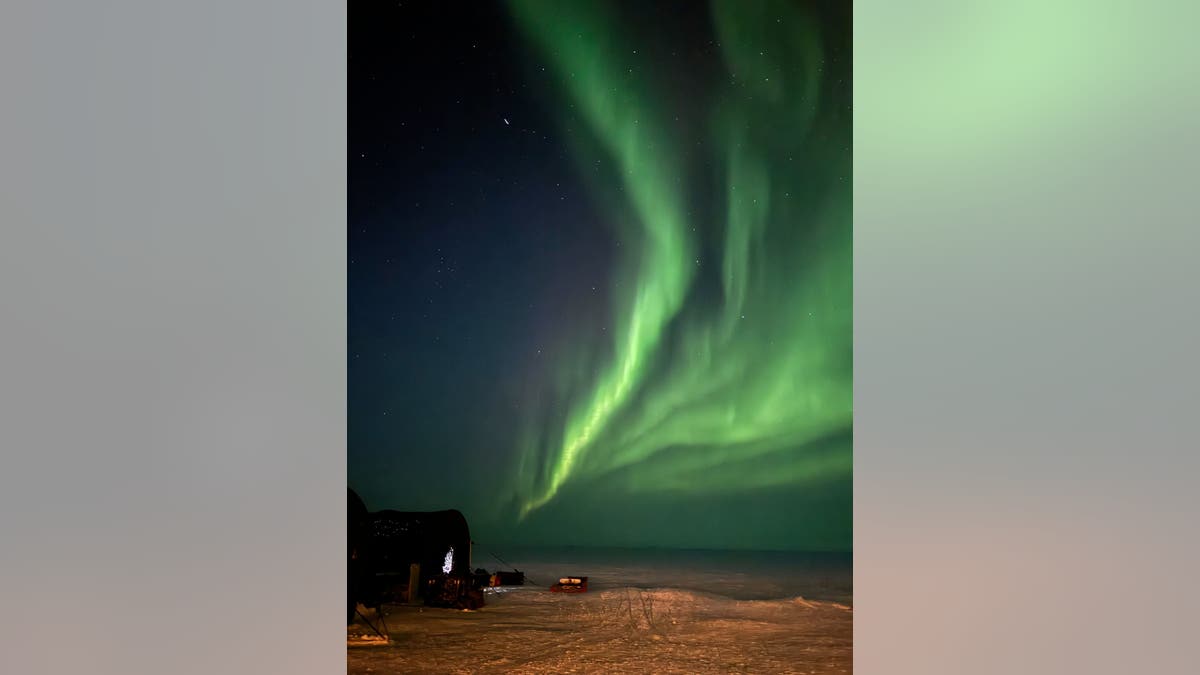
The Northern Lights from Ice Camp Whale. (Fox News - Bill Hemmer)
Given Russia's claims to the region, the potential for increased trade or resource exploration, and China's growing ambitions, the U.S. Navy's mission in the Arctic is likely to become even more vital in the coming years.
Military operations such as this will also continue to send a vital message to the world and Putin, Caudle told Hemmer, signaling America's continued commitment to free and open seas.
"I hope it sends a message to him that we take this area very seriously too, and that we're not going to stand by and allow any nation to operate up here if their intentions are not to allow for it to remain free and open," Caudle said.











































